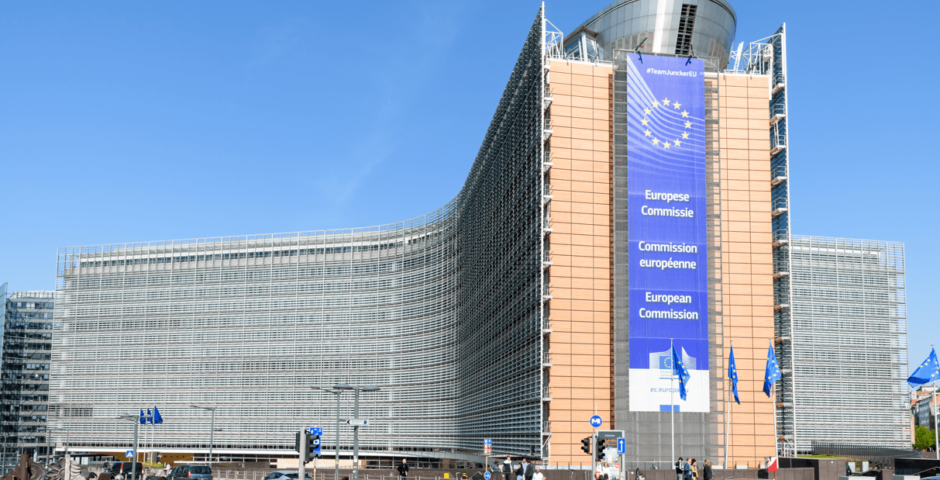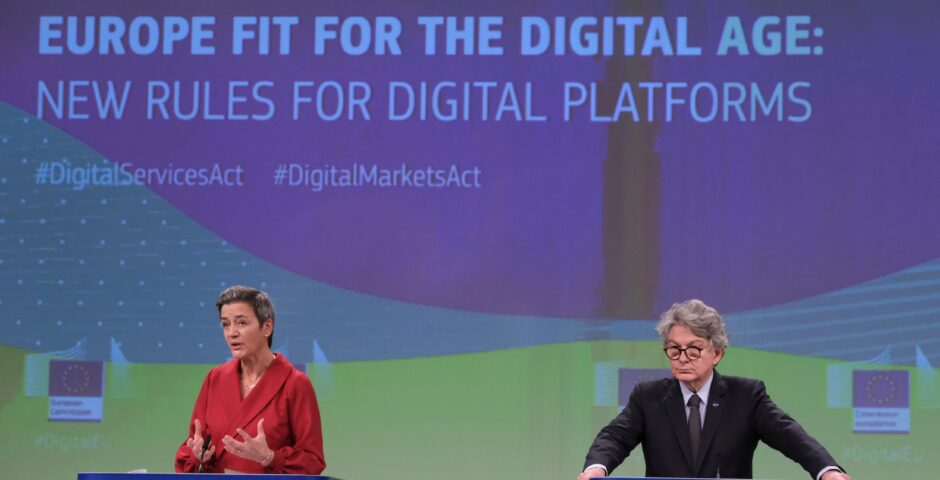The European Commission: Steering the EU’s Course in a Complex Global Landscape

How the European Commission navigates policy, governance, and global challenges to unify and lead the EU.
As the European Union (EU) gears up for the upcoming European Parliament (EP) elections, the role of the European Commission becomes ever more pivotal. With voters across the continent poised to decide on their representatives, the Commission’s influence on the Union’s policies and direction is under intense scrutiny. Recent events, such as the Commission’s handling of the COVID-19 pandemic and its ambitious European Green Deal, underscore the significance of this institution in shaping the future of the EU. This article delves into the evolution, composition, and functioning of the Commission, analysing its critical role in EU governance and examining the challenges it faces in the 21st century.
Evolution of the Commission
Established in 1958 as one of the EU’s key institutions, the European Commission has evolved remarkably over the decades. Initially functioning as a high authority within the European Coal and Steel Community, the Commission has transformed into a supranational body with significant executive powers. This evolution from a technical overseer to a political driving force has been instrumental in shaping the EU’s trajectory, reflecting its growing role in an interconnected world.
The Commission’s metamorphosis is marked by significant milestones. For instance, the Single European Act of 1986 and the Maastricht Treaty of 1992 significantly expanded its powers and responsibilities. Today, the Commission acts as the guardian of the EU treaties and the initiator of legislation. It works closely with the European Parliament and the Council of the European Union, proposing laws, policies, and budgets that address the collective needs of EU member states. Its influence extends beyond legislative functions, encompassing areas such as competition law, trade negotiations, and the implementation of cohesive EU policies.
Composition and functioning
The European Commission stands out with its unique composition, but this also brings certain challenges and criticisms. Each EU member state nominates a commissioner, resulting in a body that mirrors the diversity and expertise of the Union. The President of the Commission is nominated by the European Council and elected by the European Parliament. The President leads the team of commissioners. Each commissioner holds a specific portfolio, such as trade, environment, or digital economy, bringing specialized knowledge to their respective domains.
For example, Ursula von der Leyen, the current President of the Commission, has prioritized a green transition, digital transformation, and a stronger geopolitical stance for the EU. Commissioners such as Frans Timmermans, who oversaw the European Green Deal, and Margrethe Vestager, in charge of competition policy, play pivotal roles in shaping the Commission’s agenda.
However, the process of appointing commissioners is not without controversy. Critics argue that the nomination process can be overly politicized, leading to the appointment of commissioners based more on political alliances than on expertise and merit. This can sometimes result in a lack of cohesion and efficiency within the Commission, as commissioners may prioritize national interests over collective EU goals. Additionally, the principle of one commissioner per member state has been criticized for potentially leading to an unwieldy and less efficient body, with 27 members each pushing their agendas. The Commission employs complex collective decision-making processes to promote cohesion and facilitate the proces of governing. Multiple Directorates-General (DGs) are involved in consultations before any policy is finalized, aiming to include diverse perspectives and expertise. While sometimes criticized for its complexity, this mechanism seeks to balance national interests with EU-wide actions, fostering a more cohesive and unified approach compared to the European Council.
The Heart of EU Governance
One of the Commission’s primary functions is to propose legislation to the European Parliament and the Council. These proposals result from extensive research, consultation, and impact assessments, ensuring they address pressing issues such as climate change, economic growth, and social equity. For instance, the European Green Deal, an ambitious plan to make Europe the first climate-neutral continent by 2050, exemplifies the Commission’s proactive approach to environmental challenges.
The Commission’s role in policy formulation is critical in navigating the challenges and opportunities the EU faces. For example, its Digital Strategy aims to make the EU a global leader in digital innovation, emphasizing data privacy, artificial intelligence, and cybersecurity. In addressing social equity, the Commission has proposed initiatives like the European Pillar of Social Rights, aiming to improve living and working conditions across member states.
The Commission is also at the forefront of the EU’s external relations and trade policies. It negotiates international trade agreements, represents the EU in global forums, and works towards strengthening the Union’s role on the world stage. Through its diplomatic efforts, the Commission seeks to uphold the EU’s values and interests, fostering cooperation and partnerships with countries and regions around the globe. Recent trade agreements with Japan, New Zealand, and Canada, highlight the Commission’s efforts to expand the EU’s global economic influence.
However, the European Commission faces its own set of challenges. Navigating the complexities of EU politics, addressing the concerns of 27 member states, and responding effectively to global issues require adaptability and vision. Criticisms often revolve around issues of bureaucracy, transparency, and the balancing act between national sovereignty and EU-wide policies.
One prominent challenge is the rise of populism and Euroscepticism within member states, which can undermine the Commission’s efforts to promote integration and collective action. The COVID-19 pandemic also presented a significant test for the Commission. Its coordination of the EU’s response, including the procurement and distribution of vaccines, illustrated both its strengths and limitations. While the Commission managed to secure vaccine doses for all member states, it faced criticism over the speed and efficiency of the rollout.
Geopolitical shifts, such as the increasing influence of China and the United States’ fluctuating engagement with international institutions, also pose hurdles. The Commission must navigate these dynamics while promoting the EU’s strategic autonomy and protecting its interests.
Experts highlight the Commission’s crucial role in maintaining the EU’s relevance on the global stage. According to Professor Vivien Schmidt of Boston University, the European Commission is the engine of the EU’s policy-making process. Its ability to propose innovative solutions and steer the Union through crises is vital for the EU’s future. Former Commission President Jean-Claude Juncker echoes this perspective: “The European Union has decades of experience in overcoming crises and has always emerged stronger after”. This highlights the role of crises in pushing European collaboration forward.
However, not all perspectives are positive. Jan Zielonka, Professor of European Politics at the University of Oxford, has been more critical, arguing that the Commission often struggles to implement its ambitious policies due to bureaucratic inertia and the divergent interests of member states.
Looking Ahead
As the European Union navigates the complexities of the 21st century, the European Commission stands at the helm, guiding its course with resilience and vision. From pioneering climate initiatives to fostering digital innovation, the Commission’s role is indispensable in shaping a cohesive and prosperous future for the EU. However, this journey is not without its challenges. Criticisms of bureaucratic inertia and the balancing act between national sovereignty and collective EU goals persist. Yet, these obstacles also present opportunities for growth and reform. As we look ahead, the Commission’s ability to adapt, lead, and inspire collective action will determine the strength and unity of Europe in the global arena. The future is promising, and with each step, the European Commission reaffirms its commitment to the ideals of cooperation, progress, and shared prosperity. Europe needs capable hands, steering towards a brighter, more integrated future – hands that can manage the complexities of diverse member states and respond to global challenges, ensuring that unity and progress lead the way.
Image: Shutterstock




